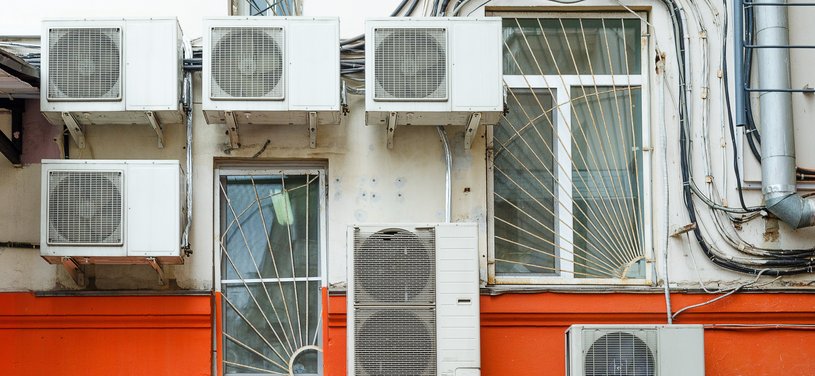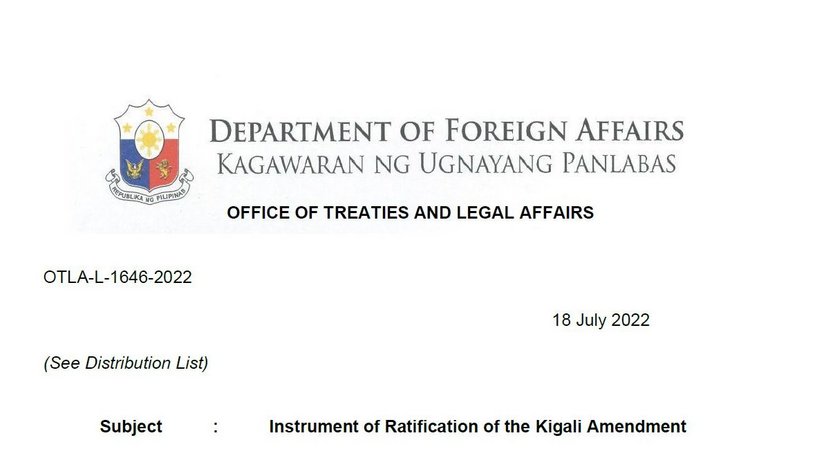On the last days of the Duterte administration on 23 June 2022, the Philippines ratified the Kigali Amendments to the Montreal Protocol. The announcement was made by the Department of Environment and Natural Resources on 15 September 2022 as part of the Philippine activities to celebrate World Ozone Day.
The Montreal Protocol remains as the most successful multilateral environmental agreement which addresses the control of ozone depleting substances (ODS). With the Kigali Amendments, the control is extended towards the phase-down of potent greenhouse gases (GHGs) called hydrofluorocarbons (HFCs). The phase down of these climate-damaging chemicals will support mitigation efforts of the Paris Agreements, limiting global warming by 0.4ºC.
With the phase-down of HFCs the shift to climate-friendly alternatives is anticipated and training technicians and workers in industries using these chemicals is necessary to ensure the safe transition of Philippine industry. The Montreal Protocol supports the training of workers handling alternative substances. Cool Contributions fighting Climate Change on its second phase or C4 II implemented by Deutsche Gesellschaft für Internationale Zusammenarbeit (GIZ) GmbH on behalf of the International Climate Initiative (IKI) of the German Federal Government have project activities lined up to support the training of technicians in the refrigeration and air conditioning sector.
Together with the United Nations Industrial Development Organization (UNIDO) a demonstration training on the safe use of ammonia and hydrocarbons are planned based on the Fit-for-Green Cooling curriculum for the Qualification, Certification and Registration (QCR) of technicians.

 Image: Shutterstock
Image: Shutterstock